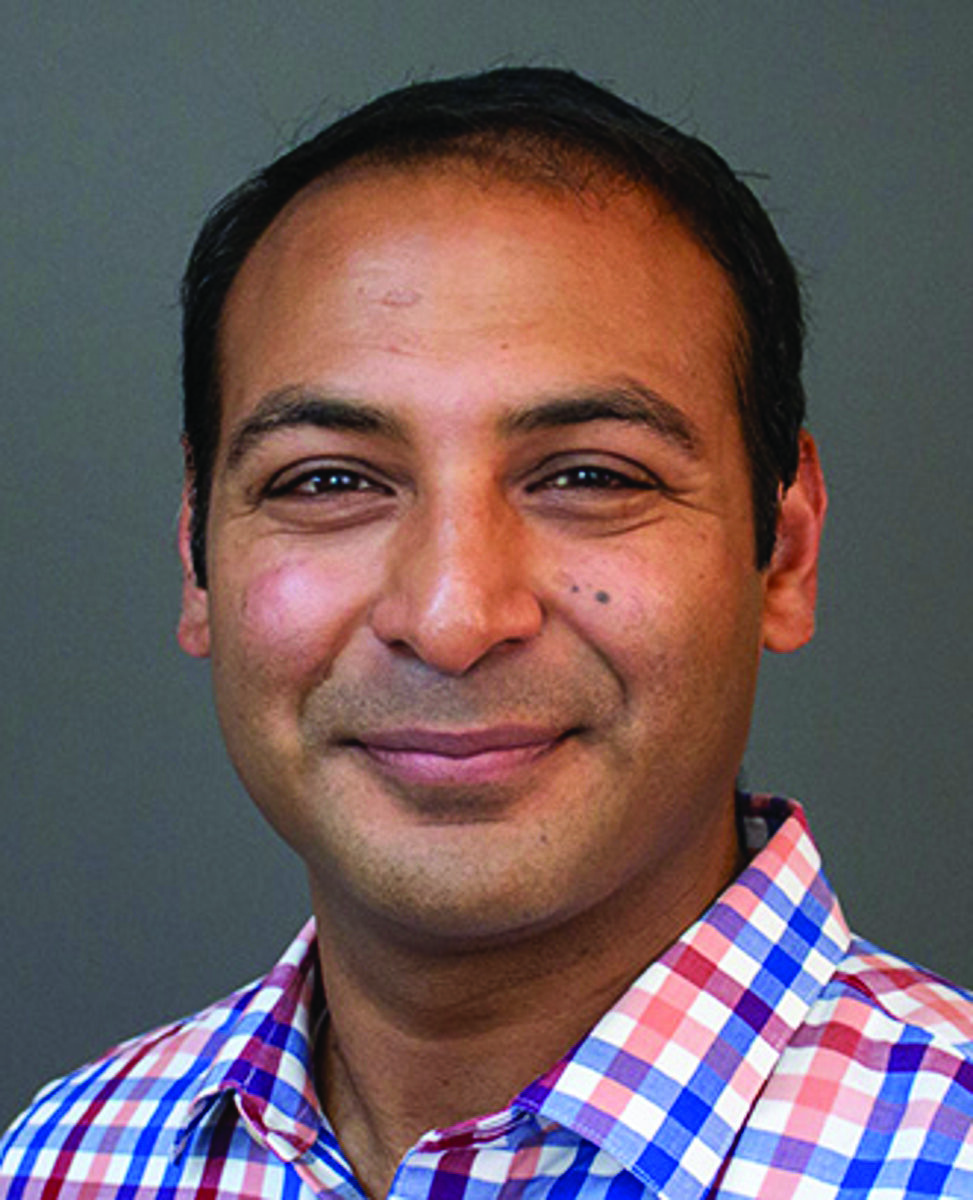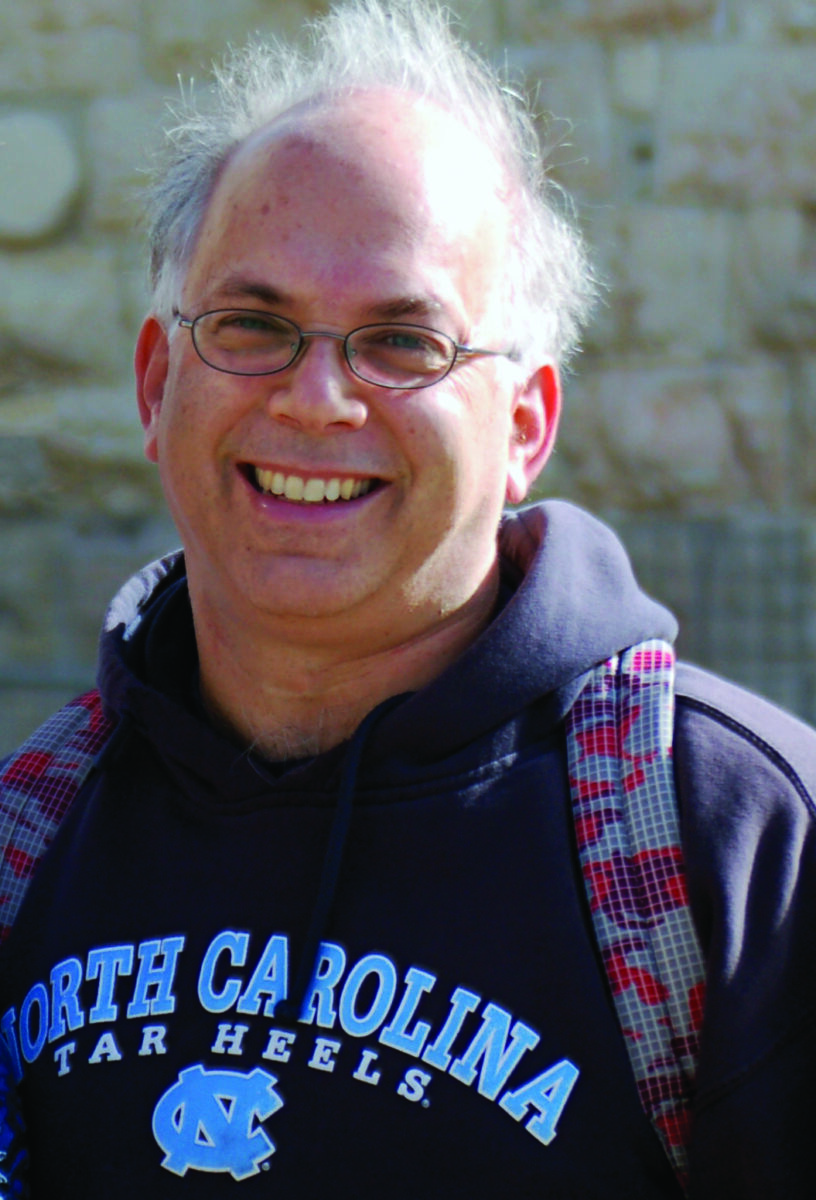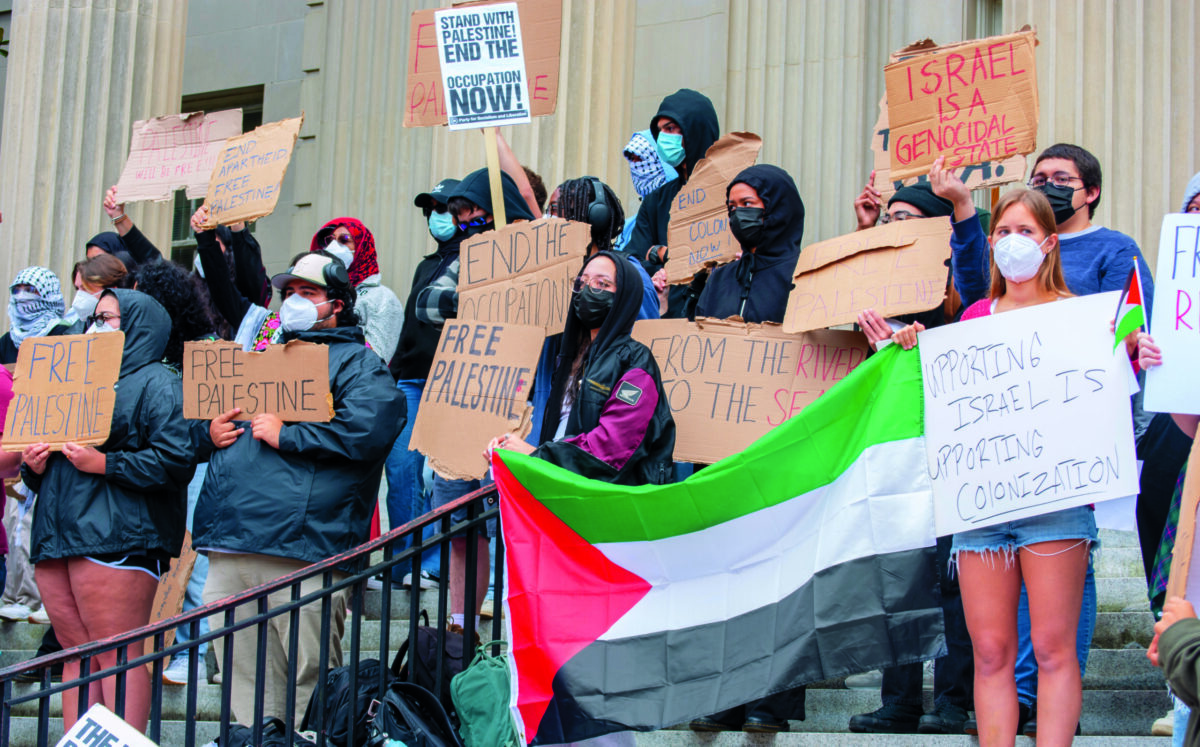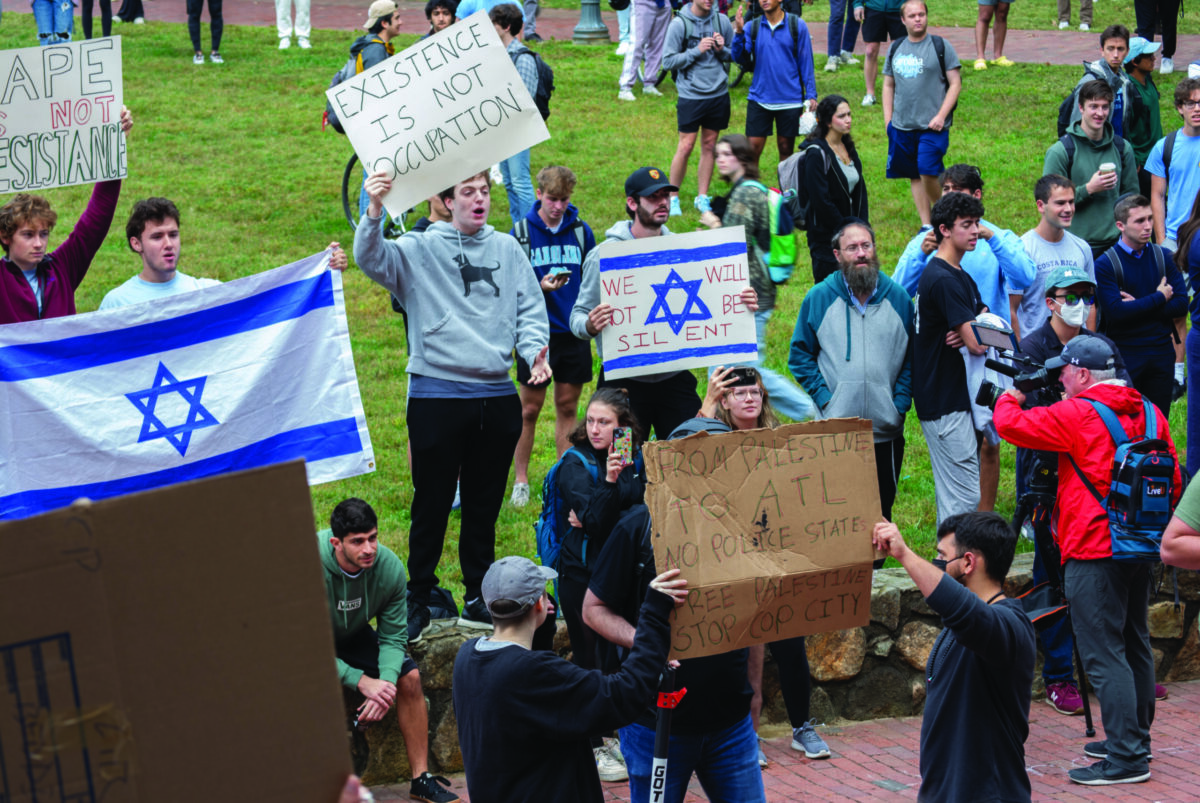“What Academics Are Supposed to Do”
Posted on Jan. 12, 2024
“The goal [of terrorism] is, essentially, to provoke — to try and induce a state to engage in a massive overreaction. Under those definitions, it looks like Hamas is accomplishing what it wanted.” — Navin Bapat, the Dowd Professor of peace and war (Photo: UNC)
College leaders nationwide have struggled to find the right balance between protecting free expression and keeping students safe from threats and harassment.
“While we have a commitment to allow both internal and external groups to express their opinions under the First Amendment, we also strive to rise above hateful rhetoric and engage in civil discourse and educated debate,” Chancellor Kevin Guskiewicz wrote just a few days after Hamas’ Oct. 7 attack on Israel. “We should lead by example, in showing how people of different backgrounds and perspectives come together and truly listen and learn from each other in an environment where everyone feels safe and supported.”
That’s a tough mission when tensions are running high, but two professors who teach in UNC’s Peace, War, and Defense program are determined to prove the most sensitive topics benefit from academic analysis. A few weeks after the war between Israel and Hamas erupted, political science professors Navin Bapat, the Dowd Professor of peace and war, and Jeff Spinner-Halev, Kenan Eminent Professor of political ethics, took the stage Nov. 6 in front of more than a hundred students and colleagues to debate the history of the conflict and the ethics of warfare.

“Different people are going to have different responses to the exact numbers [of casualties]. It’s not about absolute numbers, but about war aims. Is this level of civilian death proportionate to the threat?” — Jeff Spinner-Halev, Kenan Eminent Professor of political ethics (Photo: Jeff Spinner-Halev)
“My first reaction when the conflict started was that we had to say something, we had to be able to talk about it and explain the complexities of it,” Bapat said. “We need to do what academics are supposed to do — have discussions and explain the long history that goes beyond today’s events.”
Bapat and Spinner-Halev said they wanted to show how the tools of an academic discipline — the centuries of scholarship by political scientists and philosophers on the laws of armed conflict — can help students think more clearly about the images and headlines scrolling across their screens. “We wanted to offer an understanding of what was going on that was done within that framework, within well-established literatures, that would help people understand how to make sense of the war,” Spinner-Halev said. “What does it mean to protect civilians in war? What does the concept of proportionality mean? When are civilian deaths acceptable? When are they not acceptable?”
Those are the kind of questions Spinner-Halev poses every year in a course titled “The Ethics of Peace, War, and Defense,” one of the core requirements of the PWAD major. During the panel, he outlined some of the core tenets of Just War Theory as it applies in Gaza, detailing Israel’s right to respond and obligation to minimize civilian casualties. It’s acceptable to launch a strike against a Hamas commander, he suggested, but not if it involves excessive loss of civilian life.
Bapat has spent his career studying similar issues as they relate to terrorist organizations such as Hamas and how extremist groups use violence to further political goals. It can be hard to grasp that unspeakable violence has a strategic motivation, Bapat said, but he stressed students should understand the goals of terrorist movements if they want to effectively counter them.

Students and community members supporting Palestine stood on the steps of Wilson Library during a protest organized by Students for Justice in Palestine on Thursday, Oct. 12, 2023. Many wore masks to shield their identity. (Photo: The Daily Tar Heel/Claire Brennan)
“The moral response [to terrorism] will make you feel better immediately, and I understand the passion and the anger people feel,” Bapat explained in an interview. “But if we look at what that does, if you understand the strategy of what these groups are trying to accomplish, they want you to act on that moral outrage. It allows these terrorist groups to survive longer than they would have otherwise.”
He made that point during the public discussion about the Israel-Hamas war. As students took notes, Bapat argued that Israel’s decision to respond with overwhelming force, however justified, likely fulfilled Hamas’s strategic goal of intensifying the conflict and bringing it back to the forefront of global politics. “The goal is, essentially, to provoke — to try and induce a state to engage in a massive overreaction,” he said. “Under those definitions, it looks like Hamas is accomplishing what it wanted.”
Spinner-Halev told students Israel has an absolute right to self-defense, but that reasonable people can debate what counts as a proportional response, how much Israeli forces are obligated to avoid civilian casualties and whether a full-scale invasion is the right decision from a political and strategic standpoint. “It’s inherently ambiguous,” he said. “Different people are going to have different responses to the exact numbers [of casualties]. It’s not about absolute numbers, but about war aims. Is this level of civilian death proportionate to the threat?”
That may sound callous to students who are viewing the war through an absolutist lens of right and wrong, but Bapat and Spinner-Halev said afterward it’s important to push students beyond a black-and-white reading of global events. “We always try to identify good versus bad, but it’s really hard to do that with certainty,” Bapat said. “I understand the urge to make things simple, but we have to resist that urge and think about the bigger questions. What’s the larger cause behind it? That should be the focus of academic discussion, and we need more of these kinds of talks.”

Pro-Israel counter-protesters held signs and Israeli flags as they faced the pro-Palestine protesters. UNC students Justin Sonnenreich and Dan Stompel said they organized the counter-protest to show support for Israel. (Photo: The Daily Tar Heel/Claire Brennan)
Both professors emphasized students are on campus to learn, to fill in the large gaps in historical knowledge so they can think more deeply about the information they see flashing across news apps and social media feeds. The shift in how young people consume information makes nuance and complexity more difficult to understand, both professors said, but that’s all the more reason to emphasize the University’s mission of scholarly debate.
“Moments like this are when I really think you need the analytical perspective,” Bapat said. “That’s why I’m a professor. This is a moment when we’re supposed to be falling back on what we know and what we have expertise in, to really emphasize that, instead of giving in to our emotional reactions, which of course we all have.”
The protests and online provocations attract a lot of attention, but Bapat and Spinner-Halev emphasized the hunger they see among students for the space to learn and discuss. The auditorium for their Monday afternoon panel on the conflict was full, Spinner-Halev pointed out, with students lined up in the hallway listening in. “I think there are a lot of people who are curious and don’t really have the knowledge of the conflict to feel comfortable making judgments,” he said. Students want to be able to think clearly even about intense and polarization issues, he added, and that’s something the University can address.
— Eric Johnson ’08
Thanks for reading the Carolina Alumni Review
Carolina Alumni members, sign in to continue reading.
Not yet a member? Become one today.
